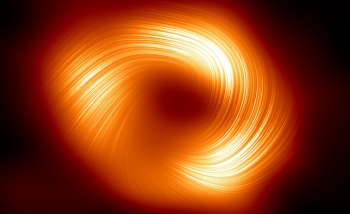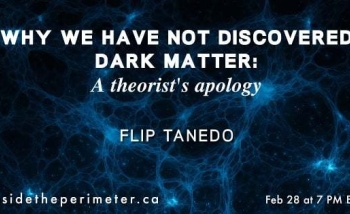Dr. Neil Turok, Director of Canada’s Perimeter Institute for Theoretical Physics (PI), is pleased to announce the appointment of internationally regarded scientist Prof. Stephen Hawking to the position of PI Distinguished Research Chair.
Prof. Hawking will conduct regular stays at PI in coming years, beginning in the summer of ’09, and says, "I am honoured to accept the first Distinguished Research Chair at the Perimeter Institute. The Institute's twin focus, on quantum theory and gravity, is very close to my heart and central to explaining the origin of the Universe. I look forward to building a growing partnership between PI and our Centre for Theoretical Cosmology, at Cambridge. Our research endeavour is global, and by combining forces I believe we will reap rich rewards."
In announcing that Prof. Hawking will visit PI for extended periods each year, PI Director Neil Turok said, "The appointment marks a new phase in our recruitment that will see leading scientists from around the world establish a second 'research home' at Perimeter Institute. I am delighted that Stephen has agreed to accept the first of a projected 40 such visiting Chairs. We look forward to hosting Stephen in Waterloo, Ontario, to benefiting from his wise mentorship and guidance which has been so successful in Cambridge, and to the many stimulating scientific collaborations which will undoubtedly emerge."
About Prof. Stephen Hawking Stephen Hawking has held the post of Lucasian Professor of Mathematics at the Department of Applied Mathematics and Theoretical Physics at Cambridge since 1979. The chair was first held by Isaac Barrow, and then in 1669 by Isaac Newton.
In his work, Dr. Hawking seeks to better understand the basic laws which govern the universe. With Roger Penrose he showed that Einstein's General Theory of Relativity implied space and time would have a beginning in the Big Bang and an end in black holes. These results indicated it was necessary to unify General Relativity with Quantum Theory, the other great scientific development of the first half of the 20th Century. One consequence of such a unification that he discovered was that black holes should not be completely black, but should emit radiation and eventually evaporate and disappear. Another conjecture is that the universe has no edge or boundary in imaginary time. This would imply that the way the universe began was completely determined by the laws of science.
Stephen Hawking has three popular books published; his best seller A Brief History of Time, as well as Black Holes and Baby Universes and Other Essays and most recently in 2001, The Universe in a Nutshell.
Professor Hawking has twelve honorary degrees, was awarded the CBE in 1982, and was made a Companion of Honour in 1989. He is the recipient of many awards, medals and prizes and is a Fellow of The Royal Society and a Member of the US National Academy of Sciences.
About PI
Perimeter Institute is the world’s largest research hub devoted to theoretical physics. The independent Institute was founded in 1999 to foster breakthroughs in the fundamental understanding of our universe, from the smallest particles to the entire cosmos. Research at Perimeter is motivated by the understanding that fundamental science advances human knowledge and catalyzes innovation, and that today’s theoretical physics is tomorrow’s technology. Located in the Region of Waterloo, the not-for-profit Institute is a unique public-private endeavour, including the Governments of Ontario and Canada, that enables cutting-edge research, trains the next generation of scientific pioneers, and shares the power of physics through award-winning educational outreach and public engagement.
You might be interested in


Why we have not discovered dark matter: A theorist's apology | Public Lecture
February 1, 2024
